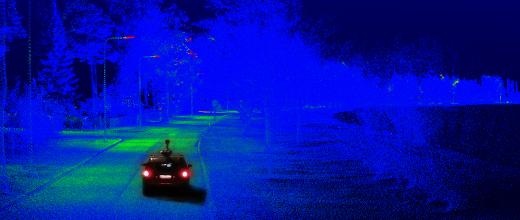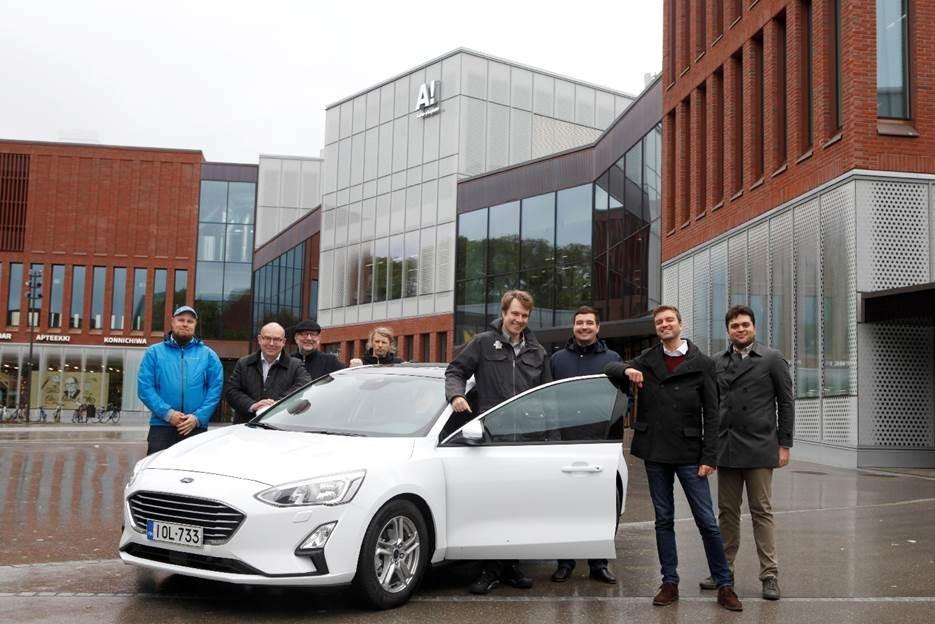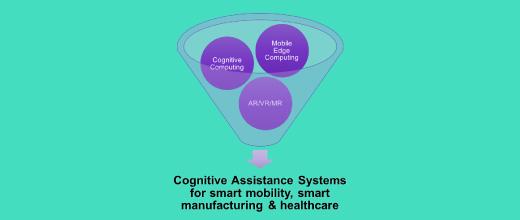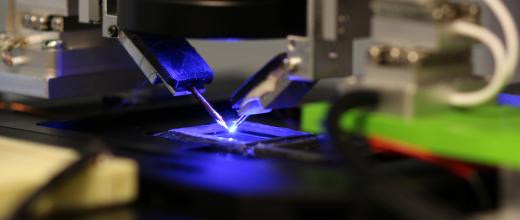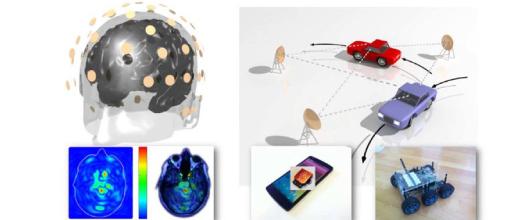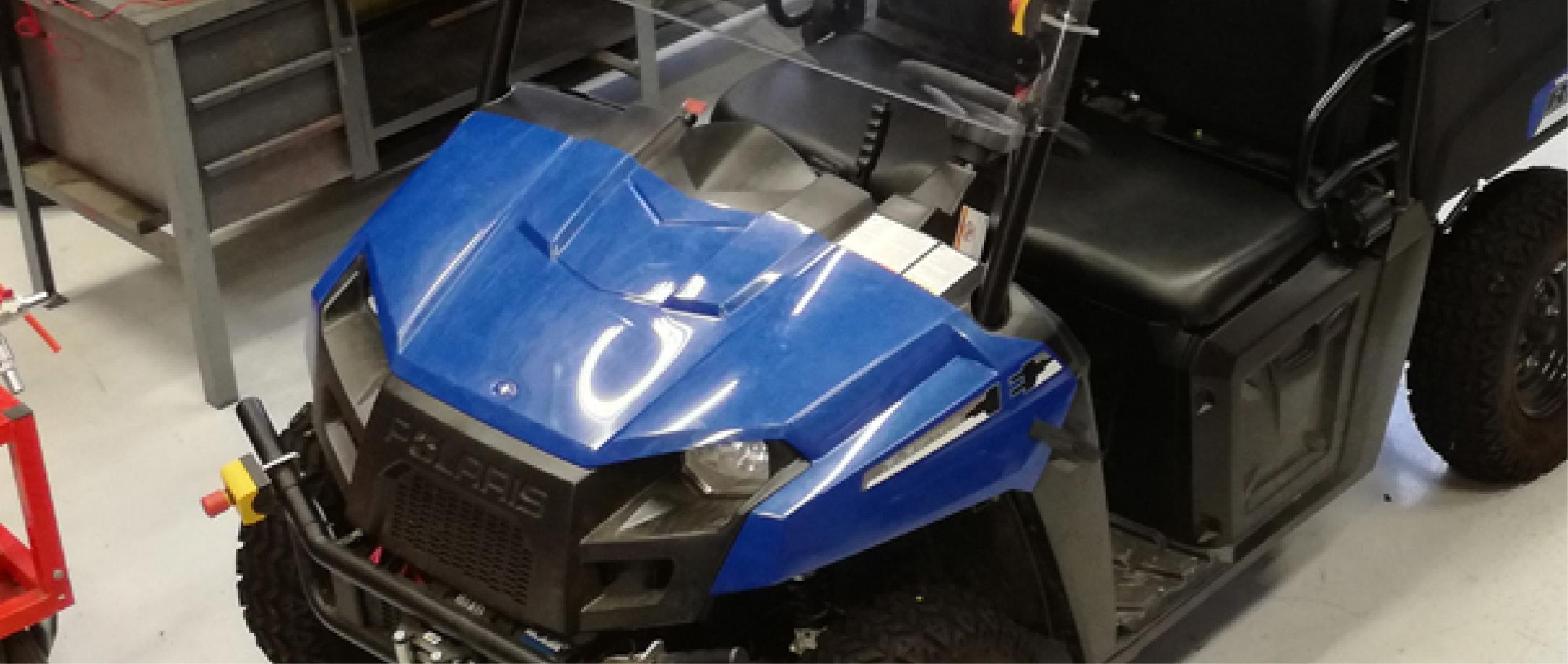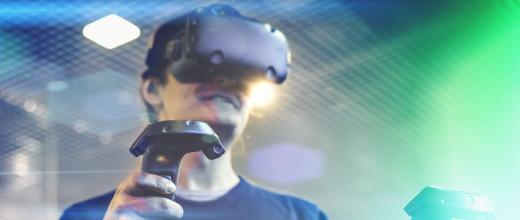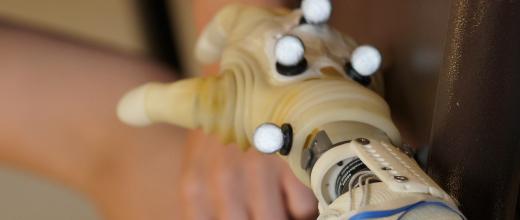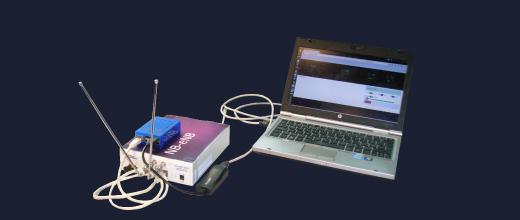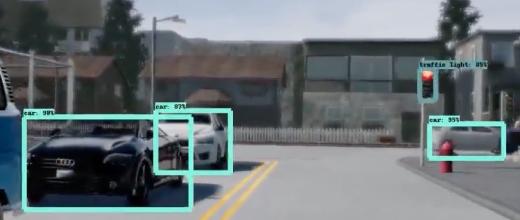Digital photogrammetry and laser scanning
Our team’s research focuses on developing modern close-range mapping solutions and applications as mobile mapping methods and the automation of data processing for 3D modelling.
Autonomous and Mobility Lab in School of Engineering
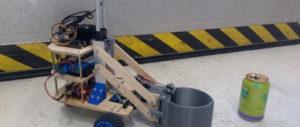
Award-winning BottleBot by Jesse Pirhonen and Risto Ojala (LINK).
Our focus is in cross section of new transportation technologies and digitalization as enabler for new features for mobility. We carry out research in transportation as well as vehicle technology. Connecting vehicles together and exchanging information with infrastructure enable Smart Mobility.
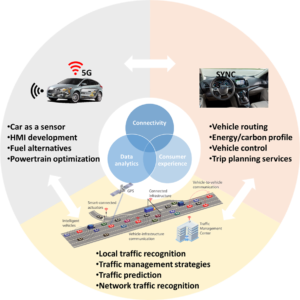
Digital transportation system view.
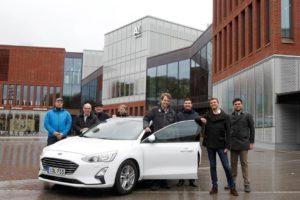
Smart mobility researchers at School of Engineering.
We currently focus more on autonomous mobility research in collaboration with School of Electrical Engineering and recently purchased platform vehicle for ADAS kit. This will in future enable us to study processing self-driving vehicle sensor data, robustness of different sensors, operation under various weather conditions, and transition to fully automated and connected traffic.
Mobile Computing
Group conducts experimental systems research on edge computing and services for cognitive manufacturing, autonomous driving and digital healthcare.
Robotic Instruments Group
The Robotic Instruments group develops advanced robotic systems beyond the current boundaries and definitions of robotics, including acoustic robotics, soft matter robotics, magnetic robotics, etc.
Sensor Informatics and Medical Technology
Research of the group focuses to sensor informatics, adaptive signal processing, and data fusion systems especially for medical applications. Other applications include smartphone sensor fusion, robotics, positioning systems, target tracking, biomedical imaging and many other indirectly measured time-varying systems.
AUTONOMOUS SYSTEMS
Autonomous systems group has been conducting hands-on research on physical heavy-duty semi-autonomous machines and autonomous mobiles robots, mainly in agriculture and forestry, for more than two decades. The group specializes in situational awareness, machine perception, SLAM, path planning, navigation, model predictive control, and multi-robot systems related issues in dynamic environments.
AALTO GAME RESEARCH
Games are a multidisciplinary field, and our research interests include physics simulation, procedural animation, control optimization, AI, full-body human-computer interaction, virtual and augmented realities, games and learning.
BIONIC AND REHABILITATION ENGINEERING
Bionic and Rehabilitation Engineering (BaRE) research group investigates engineering techniques for human-machine interfacing in order to support, augment and rehabilitate human motor function.
COMMUNICATIONS ENGINEERING
Group develops communications, information and teletraffic theory and conducts fundamental and applied experimental research in communications and networking technology, as well as business and user aspects of the technology and services.
EMBEDDED SOFTWARE
Our research focuses on the challenges brought by the large growth in data volumes through digitalization of society, and the huge increase in connected devices through Internet of Things (IoT).
AALTO SYSTEMS & SERVICES ENGINEERING ANALYTICS
Engineering analytics is concerned with the techniques and tools for desiging, monitoring, analyzing, and optimizing functions, performance, data quality, elasticity, and uncertainties associated with systems, software, data and services.
ADAPTIVE SYSTEMS OF INTELLIGENT AGENTS (ASIA)
Engineering analytics is concerned with the techniques and tools for desiging, monitoring, analyzing, and optimizing functions, performance, data quality, elasticity, and uncertainties associated with systems, software, data and services.
AMBIENT INTELLIGENCE
The group studies efficient algorithms that enable intelligent spaces and interaction, including on-body and environmental sensing, usable security, optimization and machine learning methods.
Visual Computing and Human Computer Interaction (HCI)
Visual computing and HCI research focuses on computer systems that perceive the world and augment human perception, with the goal of easing life.
DISTRIBUTED ALGORITHMS
Our current research focuses on the foundations of distributed computing. The key research question is related to the concept of locality in the context large computer networks.
DISTRIBUTED AND NETWORKED CONTROL SYSTEMS
The main objective of this line or research is to develop the framework on how to treat the interplay between communications and control to solve distributed control and optimization problems arising in distributed systems and in Cyber-Physical Systems (CPS), in general.
User Interfaces
The group studies computational methods for improving user interfaces, including modeling, optimization, and machine learning methods.
Spatial Planning and Transportation Engineering
Our research connects spatial planning and transportation engineering for developing new scientific knowledge needed in systemic understanding, problem-solving, and integrative planning and policy-making beyond sectoral boundaries, aimed at achieving human-centered living environments.
Network Systems
Our research focuses on the challenges brought by the large growth in data volumes through digitalization of society, and the huge increase in connected devices through Internet of Things (IoT).
Mobile Network Softwarization & Service Customization (MOSAIC)
The group heavily works on Mobile Network Softwarization and Service Customization.
Intelligent Robotics
Group performs research in robotics, computer vision and machine learning.
Information Technologies in Industrial Automation
The focus areas of the research in our group is on various aspects of information technology applications in industrial automation. We are investigating enablers of future smart factories, commonly known as 4th industrial revolution or Industry 4.0.
Network Architecture, Protocols and Services
Our research is focusing on transport and application layer aspects. In conjunction with this, we work towards understanding user behavior (mobility, network and service interactions) and traffic patterns in the Internet through measurements and modeling and on the impact of network performance on user quality of experience.
Mobile Robotics
Mobile Robotics group focuses on enabling autonomous physical agents to safely, successfully, and legibly operate in dynamic environments shared with humans.
